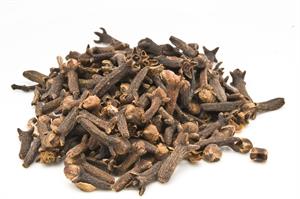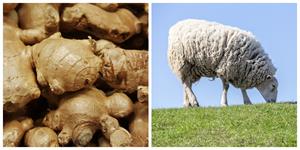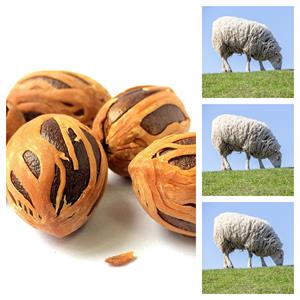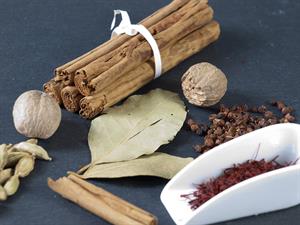
PUMPA - SMART LEARNING
எங்கள் ஆசிரியர்களுடன் 1-ஆன்-1 ஆலோசனை நேரத்தைப் பெறுங்கள். டாப்பர் ஆவதற்கு நாங்கள் பயிற்சி அளிப்போம்
Book Free DemoHow do you think the expansion of the spice trade set the stage for a new world?
Spices were always an important part of India’s trade. Spices were traded with Mesopotamia, China, Sumeria, Egypt and Arabia, along with perfumes and textiles as far back as 7000 years ago much before the Greek and Roman civilisations. Indian epics and in writings dating back to the Roman Empire in the 1stcentury CE talk about the cloves. Thousands of years ago the great masters of Ayurveda had listed the use of spices for cooking and in medicines.
Spices were always an important part of India’s trade. Spices were traded with Mesopotamia, China, Sumeria, Egypt and Arabia, along with perfumes and textiles as far back as 7000 years ago much before the Greek and Roman civilisations. Indian epics and in writings dating back to the Roman Empire in the 1stcentury CE talk about the cloves. Thousands of years ago the great masters of Ayurveda had listed the use of spices for cooking and in medicines.
While these spices are readily available today, there was a time when people risked their lives to get Indian spices. During the Middle Ages, a pound of ginger was worth the price of a sheep. A pound of mace was equal to the price of three sheep or half the price of a cow. Pepper was the crown jewel of all spices.
What are those spices that the world wanted so badly?
Cardamom, cloves, ginger, mace and nutmeg were some of the other spices that left Indian shores to flavour the world’s kitchen.
Cardamom, cloves, ginger, mace and nutmeg were some of the other spices that left Indian shores to flavour the world’s kitchen.
Using spices in cooking has a long history. It may go back as far as 52,000 years ago. Though we cannot know for sure how men came to use spices, it is quite possible that it was by chance. However, spices have played a vital role in our food now for a long time. In earlier centuries, spices were not easily available and were very expensive. Thus, spice traders became rich. Pepper and cinnamon no longer cost a fortune. However, while they seem to have lost their glory and value, they will never lose their place in a kitchen. Especially an Indian one!
Explanation:
Let us explore how the spice trade changed the trade scene.
The most important part of India's trade were spices. India's trade started as early as \(7000\) years before the Greek and Roman civilizations. India traded spices, perfumes and textiles with:
- Mesopotamia
- China
- Sumeria
- Egypt and
- Arabia
There have been written proof in Indian epics (great legends) from\(1st\) century CE about Indians' trade of cloves. Cloves are flavorful and aromatic spices, derived from dried flowers of the clove plants.

Clove - the aromatic spice!
Ayurveda is the traditional system of Hindu medicine, that is popular till date. The doctors of Ayurveda have explained the usage of spices for cooking and as medicines, about \(1000\) years ago. It was not easy to procure the spices in those days; some people have even risked their lives to get Indian spices. However, these spices are readily available to us today.
During the Middle Ages (that is from the \(5th\) to \(15th\) century), one pound of ginger (less than half a kilogram) was equal to the price of a sheep.

Both were of the same value!
A pound of mace (less than half a kilogram), was equal to the price of three sheep or half the price of a cow! It is good to note that pepper was the most precious of all spices.

Half a kg of mace priced equal to three sheep!
The world needed some spices from India at any cost - cardamom, cloves, ginger, mace and nutmeg were some of the few spices that went abroad to give a delicious flavour to food in the international kitchens. Mace and nutmeg are almost the same spice - the red flesh on the nutmeg seed is dried and used as mace, (refer picture above).
Spices have been used in cooking for about \(52,000\) years! No one knows how spices came to use for the first time, but it is guessed that it was by trial. Till now, spices are an important part of our food. In earlier days, spices were costly, and it was not easy to obtain them. Therefore spice trade was a profitable business, and those who traded spices became rich. Now since these spices are easily available, pepper and cinnamon have come to a stage where the rates have become normal. The grandness and glory of the spices may have reduced due to its ready availability today, but they will never lose their places in our Indian kitchens!

Spices, though not glorified today - still they are an important part of our kitchen!
No. | Words | Meanings |
1 | pound | a unit of weight equal to 0.4536 kg |
2 | mace | the reddish fleshy outer covering of the nutmeg, dried as a spice |
3 | fortune | a large amount of money or assets |
Reference:
State Council of Educational Research and Training (2019). Term-1 English Standard-6. Spices of India (pp. 148-153). Published by the Tamil Nadu Textbook and Educational Services Corporation.